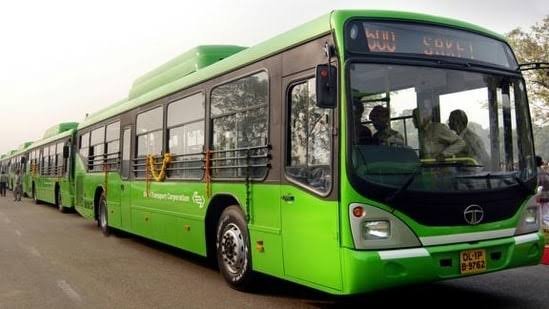DTC Rolls Out Behavioural Training for Bus Drivers, Conductors to Ensure Safer, Respectful Commutes
In a significant move to enhance commuter safety and improve the overall experience of public transport users, the Delhi Transport Corporation (DTC) is set to implement a mandatory behavioural training programme for all its bus drivers and conductors. The initiative, announced by Delhi Transport Minister Pankaj Singh on Friday, is part of a broader effort to address concerns about rash driving, unprofessional behaviour, and traffic violations frequently reported against DTC personnel.
The new training programme will cover both permanent and contract employees, focusing on road safety, responsible passenger engagement, and professional ethics. “We want DTC buses to be safe, reliable, and respectful spaces for all commuters,” Singh stated. “This initiative aims to bring a positive shift in the way DTC staff interact with the public and follow traffic norms.”
Focus on Safe Driving and Passenger Respect
According to officials, drivers will receive specific training to avoid speeding, stop only at designated points, follow lane discipline, and strictly adhere to traffic signals. The programme also aims to eliminate unsafe practices such as driving with doors open, using mobile phones while on duty, and failing to halt for women and elderly passengers.
“We have received numerous complaints regarding such behaviours, and this training is designed to address them directly,” Singh said. “The idea is to instil a culture of accountability, where every driver and conductor understands their responsibility toward passenger safety and public trust.”
Special emphasis will be placed on improving sensitivity in driver-passenger interactions. The training modules will include counselling sessions and regular refresher courses, alongside structured classroom learning and on-ground practical sessions.
Technology to Aid Monitoring and Enforcement
To ensure effective implementation and monitoring, the DTC will leverage its existing CCTV infrastructure. Most electric buses in the fleet are already equipped with four surveillance cameras: two for monitoring passengers, one road-facing dashcam, and one focused on the driver. These systems will play a crucial role in assessing driver behaviour, investigating complaints, and providing evidence in case of violations or accidents.
Older buses that remain in service are being retrofitted with similar surveillance equipment, ensuring comprehensive coverage across the fleet. CCTV footage will be regularly reviewed to identify misconduct and enforce compliance.
Strict Action Against Traffic Violations
Transport department officials confirmed that a strict enforcement mechanism will accompany the training initiative. Any violations — such as jumping red lights, halting on zebra crossings, reckless driving, or inappropriate conduct — will lead to departmental action, including suspension or dismissal in severe cases.
Passengers will also have a more direct role in maintaining safety standards. A dedicated transport department helpline — 011-41400400 — has been activated for the public to report incidents. Commuters can lodge complaints by sharing the bus number and specific details of the issue.
Special Attention Near Sensitive Zones
Recognising the heightened risk in areas such as schools, hospitals, and busy markets, the government has instructed DTC to adopt a zero-tolerance policy in these zones. Any instance of drink driving will attract immediate action, and staff will be reminded of their duties through ongoing awareness campaigns.
“DTC buses are not just vehicles; they are daily lifelines for lakhs of people, especially in rural and peripheral areas of the city,” Singh emphasized. “We want to ensure that the public transport system is not only efficient but also safe, courteous, and inclusive.”
Long-Term Commitment to Change
The sensitisation programme will be developed in collaboration with transport experts, psychologists, and road safety professionals to promote lasting behavioural change. Officials confirmed that the initiative is not a one-time exercise, but a sustained effort to transform the DTC’s public image and service standards.
By setting clear expectations, utilising modern surveillance tools, and emphasising both safety and respect, the Delhi government hopes to elevate public transport into a more commuter-friendly and dependable mode of travel.








